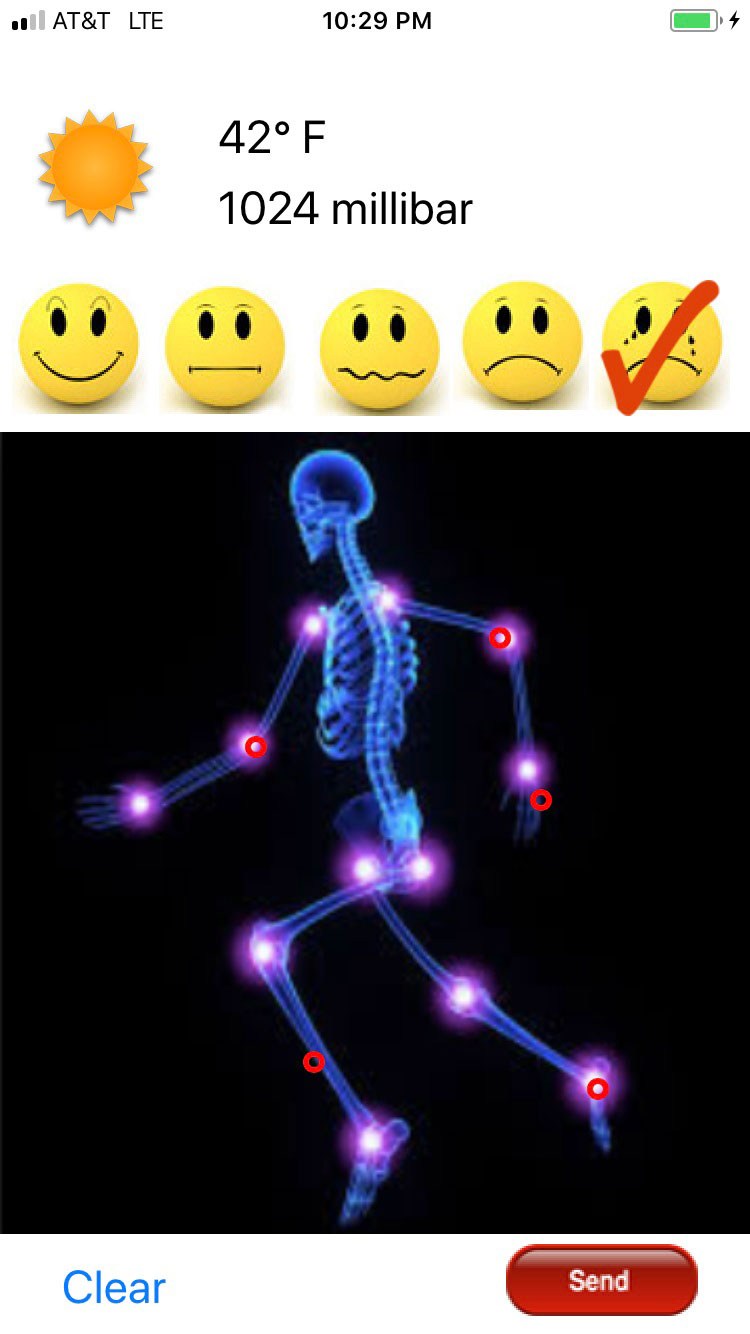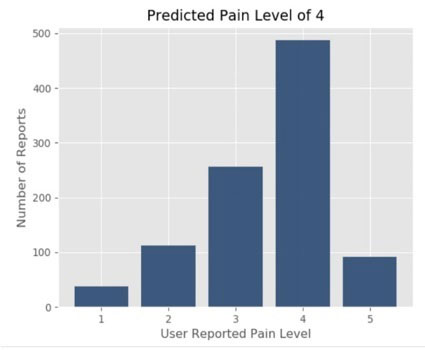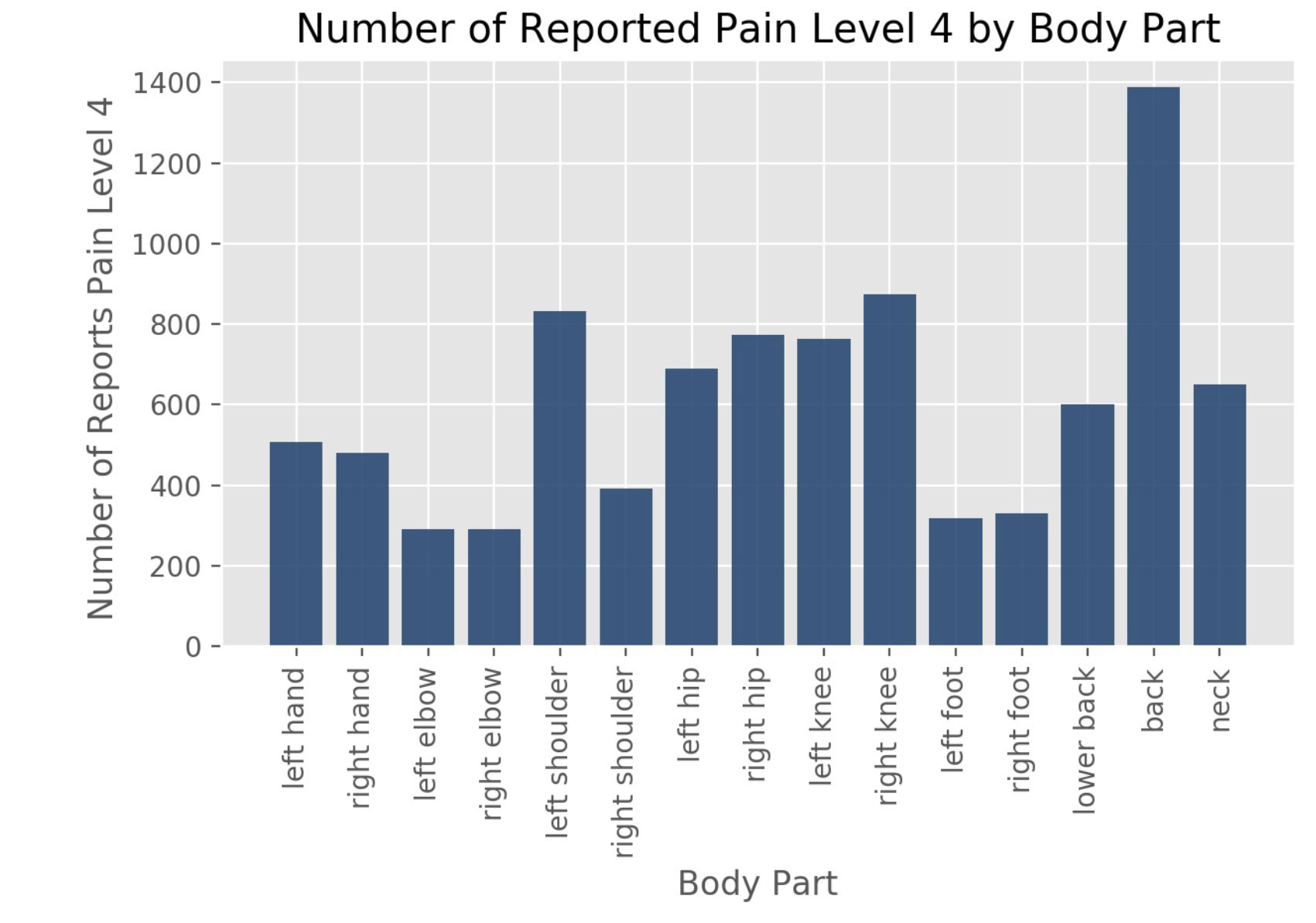Session Information
Session Type: Poster Session A
Session Time: 1:00PM-3:00PM
Background/Purpose: Pain is a disabling, depressing state which reduces an individual’s productivity. Weather changes have been vaguely attributed to cause pain. Previous studies have had inconclusive results.
We decided to focus on barometric pressure, since weather patterns are a by-product of barometric pressure waves. Additionally we wanted to demonstrate barometric pressure changes that would trigger a person to the next level on the Wong -Baker faces pain scale. We created a mobile application, ARTHRITIS PAIN RADAR, which uses an algorithmic methodology for data collection and machine learning to determine a person’s tolerance to barometric pressure changes and therefore, pain.
Methods: The study group consists of 500 randomly chosen individuals using the Arthritis Pain Radar application on a daily basis. Once an individual starts the Arthritis Pain Radar application, barometric pressure levels are collected at their location. The person inputs the pain levels and affected body parts on a modified homunculus. Using machine learning, pain projections are made on an hourly basis over the next 3 days factoring speed, intensity and direction of barometric pressure waves. This data is validated against the individuals pain status. Arthritis pain radar application and cloud machine learning is used to calculate pain tolerance and eventually better target pain alerts on the application.
Over the course of 7 days, using machine learning, a determination is made as to the barometric pressure changes which pushes the patient to the next ascending or descending pain level. The correlation of pain level to barometric pressure changes Is bidirectional.
Results: Our global data shows 4 millibars is the average tipping point to alter pain levels in one position in either direction. We also demonstrate that barometric pressure changes are valid causes of change in the level of pain for patients with connective tissue disorders.
Conclusion: Previous studies have focused on various weather attributes as the reason for pain; this caused conflicting and confusing results. We have demonstrated that barometric pressure changes can impact pain levels irrespective of ambient temperature, humidity, or precipitation.
The application has validated our premise that changes in barometric pressure are the singular weather attribute for pain.
The use of the application ARTHRITIS PAIN RADAR, provides pain alerts to individuals which facilitates day-to-day predictability.
To cite this abstract in AMA style:
Zahabi F, Kerr K. The Impact of Barometric Pressure Waves on Connective Tissue Disorders [abstract]. Arthritis Rheumatol. 2022; 74 (suppl 9). https://acrabstracts.org/abstract/the-impact-of-barometric-pressure-waves-on-connective-tissue-disorders/. Accessed .« Back to ACR Convergence 2022
ACR Meeting Abstracts - https://acrabstracts.org/abstract/the-impact-of-barometric-pressure-waves-on-connective-tissue-disorders/



